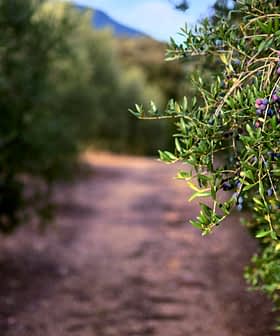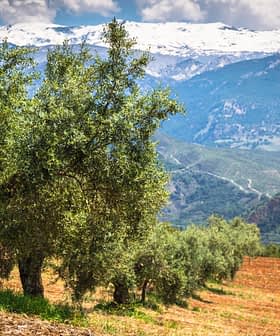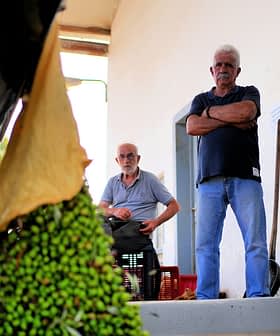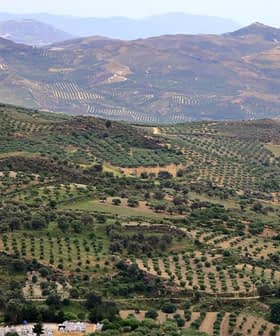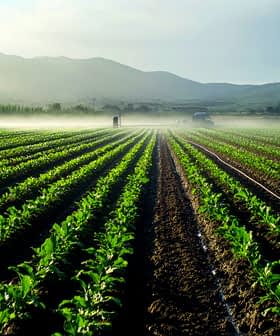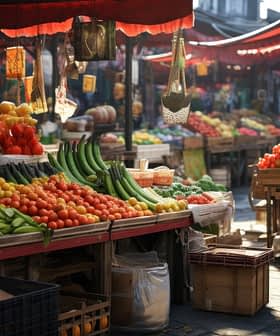 5.2K reads
5.2K readsBusiness
Greece’s New CAP Plan Approved By European Commission
The European Commission has approved Greece’s national strategic plan, which aligns with the latest revision of the E.U.‘s Common Agricultural Policy (CAP), with €13.4 billion in E.U. funds allocated for direct subsidies to Greek farmers over the next four years and an additional €822 million from Greece’s public coffers. The plan includes measures to support the country’s olive sector, facilitate access to land and financing for young farmers, and promote environmentally-friendly practices through the introduction of eco-schemes under the new CAP.
The European Commission has approved Greece’s national strategic plan, which aligns with the latest revision of the E.U.’s Common Agricultural Policy (CAP).
The new strategic plan, which started on January 1, 2023, is financed by the E.U. and Greece. €13.4 billion of European Union funds will be allocated for direct subsidies to Greek farmers over the next four years. Additionally, Greece will contribute another €822 million from the public coffers to the plan.
The country’s olive sector is eligible for financial aid under the new scheme. Greek olive oil and table olives producers could also benefit from a range of subsidized programs targeted at the so-called “Organizations of Olive Producers — OEF” with a budget set at €10.6 million per year from 2023 – 2027.
See Also:New E.U. Ag Policy Could Benefit Greek Olive Growers If Requirements Are MetThe plan also includes measures to ensure easy access to land and financing for young Greek farmers (below the age of 40) to facilitate the renewal of the country’s agricultural sector.
In addition, Greece’s strategic plan, as required for all E.U.-member states, is aligned with the European Green Deal and the European Union’s Farm to Fork and biodiversity strategies.
Direct subsidies to farmers, growers and livestock breeders are more tied to environmental objectives and green agricultural practices under the new scheme.
“Greece’s plan will improve the viability of small- and medium-sized holdings, which represent the backbone of Greek agriculture,” the European Commission said in an announcement. “This will be done with the help of targeted income support and an additional redistributive payment.”
See Also:Europe Reveals ‘Farm to Fork’ Strategy for Food SustainabilityYiorgos Georgantas, the Greek minister of agriculture, stated that the new strategic plan would help the nation’s farmers deal with emerging issues.
“The adoption of our strategic plan marks a new period of significant reform and change for our primary sector and rural areas, given the serious and major challenges they face,” the minister said.
“Through our national strategic planning, we seek to integrate in a balanced way the objectives of the new CAP for economic, environmental and social sustainability.”
The new CAP also introduces eco-schemes, an initiative aimed at motivating farmers to adopt agricultural practices beneficial to the climate, the environment, the water quality and biodiversity. Eco-schemes will be given more than €3.6 billion from the CAP funds allocated exclusively to Greece.
According to Kostas Bayinetas, the secretary-general for the country’s agricultural policy, the “big change” for farmers in the new scheme is their obligation to stick to environmentally-friendly practices.
“In the new year, farmers will have to select an action from the list of eco-schemes, such as crop rotation, the preservation of organic farming or animal husbandry,” Bayinetas clarified.
According to the provisions of the CAP, beneficiaries who fail to embark on an eco-scheme and apply environmentally-friendly practices will have their subsidies reduced by 25 percent.
“I think all olive farmers will want to embark on an eco-scheme with the new CAP,” Dimitris Mavroidis, from the Agricultural Olive Association of Livanates in the Fthiotida region, told Olive Oil Times. “A single farmer will virtually gain nothing by working separately. Even more, there is no black market in table olives trading if, hypothetically speaking, a stand-alone actor was looking to benefit from illegal exports.”
“However, the subsidies under the new program are reduced compared to previously and will likely further reduce over time since we will have to direct resources to even more green practices at the expense of olive trees cultivation,” Mavroidis added.
Other experts concurred that a reduction in direct funding should be expected, and farmers must put in extra work before receiving backing under the new scheme.
“Farmers and growers should expect lesser funding under the new CAP,” agriculturist and scientific advisor Ioannis Peroulakis told us.
“Roughly speaking, an olive farmer who received €10,000 from the CAP plan currently in operation should be expecting a total funding of around €7,000 with the new scheme,” Peroulakis added.
“Farmers will also have to do more to receive the funds, since there are many steps involved before their bank account is credited. Therefore, farmers are not so happy with the CAP reform.”
Peroulakis also said that the new scheme favors those working hard to cultivate the land since several idle farmers received backing under the previous CAP strategy.
However, he identified the lack of information about the new CAP as a significant obstacle for farmers.
“The new common agricultural policy would be a significant step forward, provided there was adequate orientation and information for farmers, who are still in the dark when it comes to the exact provisions and requirements of the policy. This is due to the complexity of the whole scheme and poses a significant challenge to farmers and agronomists at an E.U.-wide level.”


